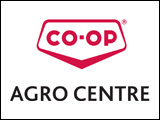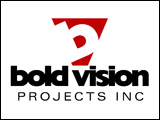Quite simply, one works long term and the other doesn’t. It should be noted that there is a time and a place for both short-term diets and a healthy lifestyle approach. Each situation is unique and should be recognized and evaluated individually. If a diet approach is initially taken, it should be one that has been scientifically researched and should be implemented with the help of a professional to ensure it is done properly to avoid risks of deficiencies or complications. Certain diets, such as a ketogenic approach, Elimination or Candida meal plans, have led to incredible health benefits and/or weight loss success for certain individuals. However, it should be noted that diets are to be used short term and should eventually transition into an all-encompassing healthy lifestyle for permanent change. Diets are generally more extreme and tend to restrict entire food groups. They focus more on quantities and implement a strict set of rules. Short-term diets generally do not lead to long-term changes in underlying behaviors or the development of life skills.
A healthy lifestyle, on the other hand, is the ultimate, sustainable goal and is holistic, permanent and encompasses a variety of areas of health including diet, fitness, nutrition, physical environment, mental health, social relationships and spirituality. A lifestyle change leads to a new perspective, positive behaviors and the creation of intrinsic goals. It can be achieved by a series of baby steps that implement additions, eliminations, substitutions and focuses on applying the following principles in all areas of life.
Variety & Enjoyment – (Changing it up & making it fun)
- Variety – this overlap ensures that we meet all of our needs from a diverse range of sources. Rotating and changing things up in our routine also counteracts boredom.
- Enjoyment – this increases the chance that we will stick to our healthy behaviors. Find something you love and make it fun!
Moderation & Adequacy – (Finding a healthy range – establishing minimum and maximum boundaries)
- Moderation – this ensures that we don’t get too much of anything. Knowing proper portion sizes is important in this regard.
- Adequacy – this guarantees we get enough of everything to reach our minimum requirements in order to function properly.
Balance & Adaptability – (Staying in control while allowing for exceptions and adjustments)
- Balance -this makes healthy living realistic in a world full of temptation. We can only control our circumstances up to a certain point. Use the 80/20 rule and aim to make healthy choices 80% of the time while fully enjoying the 20% you cannot control (in moderation of course)!
- Adaptability – this is used when we are exposed to situations that exceed our regular comfortable range of balance. We must then learn to make the best of them by being informed, creative and flexible.
Mindfullness & Individuality – (Tuning into our bodies and accepting our unique selves)
- Mindfulness -this is the concept of listening to our bodies. Nobody knows our bodies like we do… so we should be aware of what it is saying, and trust it to guide us in the right direction!
- Individuality -No two people will thrive on the exact same lifestyle. We are all created differently and will need different levels of certain things to function. It is important to accept and embrace this and not compare ourselves to others when setting goals.
Quality & Simplicity – (Not making things complicated! Less is more when you do it right)
- Quality -this emphasizes that when choosing high quality, quantity naturally falls into place. Getting what we need and feeling satisfied from less is possible when making better, more effective choices!
- Simplicity – this basically means that health does not have to be overwhelming! Keeping things simple and learning to be efficient to make our time and efforts count is key.
Consistency & Persistence – (Faking it until you make it and never looking back)
- Consistency – this is intentionally repeating good behaviours the majority of the time until we create actual habits that become permanent and natural.
- Persistence – this is the idea of continuously focusing on the future with optimism and motivation. We mustn’t get discouraged or dwell on past decisions. Stay positive by remembering why you started!
Planning & Modification – (Setting yourself up for success while consistently re-evaluating)
- Planning -this is the key to avoiding failure and preventing relapse. Pre-establishing loose guidelines and schedules is important in being prepared and pro-active in areas of weakness by having the resources and support we need to overcome them.
- Modification -this acknowledges the fact that we will have phases in life just as the earth has seasons and that no plan is set in stone. Further lifestyle changes will take place as your environment changes and your body, mind and soul develop. It is important to re-assess and modify our regular routine depending on the state we are in.
Perspective, Perspective, Perspective – (It’s all in how you see it!)
- Perspective – this is the idea of emphasizing what we are adding to our lives instead of what we are cutting out of it! It’s all about being positive, being grateful and controlling our thoughts.
For more details on what type of steps to take in order to achieve a healthy holistic lifestyle, consult a nutritionist or an appropriate health care professional to provide you a list of nutritious foods along with proper combinations and portions, exercise regimes, stress management tips, accountability/coaching sessions and supplemental suggestions.



